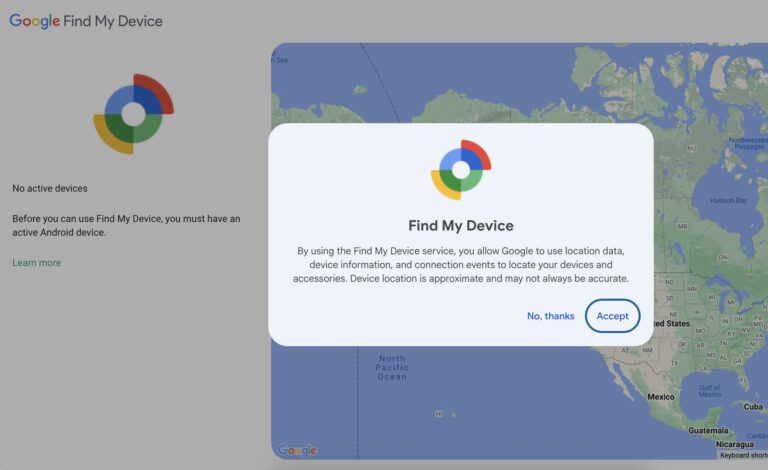
[ad_1]
Forward-looking: Google announced an ambitious new feature to find lost Android devices more easily almost a year ago but delayed it indefinitely to finalize a collaboration with Apple on tracking protection. Recent signs indicate that both companies are preparing to launch their systems for more powerful and safer device tracking soon.
Reports indicate that, after a year-long delay, Google will soon launch a feature that lets users track lost items using pings from nearby Android devices. The new functionality includes multiple settings to address privacy concerns, which were one factor behind the delay.
Google announced the Find My Device network last May. It uses wireless pings from billions of Android devices to accurately pinpoint the location of an offline device. The company claims that the pings use encrypted data that it cannot read, but users can choose whether or how often the system activates.
Find My Device has three presets. If users choose not to participate in the ping network, a lost device will show its location from the last time it was online. A middle setting only engages the network in busy areas like airports or train stations to help anonymize individual users. With the “all areas” preset activated, a device will always contribute to the ping network. However, Google delayed the feature’s rollout in July, waiting for Apple to update its products to support unified device tracking.
Seems like Google has started rolling out the Find My Network with Google Play Service beta version 24.12.14
It’s enabled for me without turning on any kind of flags. #Google #Android pic.twitter.com/WcxXMlPsLE
– AssembleDebug (@AssembleDebug) April 3, 2024
A few days before unveiling Find My Device, Google announced a partnership with the Cupertino giant to create a standard protocol for device tracking to help fight fob stalking. Since tech companies released devices like AirTags to help users find lost items, they’ve been used to track people without their consent. Systems exist to alert users if unknown fobs are moving with them, but they are harder to implement if someone is tracking an Android phone user with Apple’s AirTags, or vice versa.
The collaboration between the two tech giants ensures that Android and iOS devices can detect fobs from multiple vendors. Google decided to wait until Apple updated iOS to implement the safeguard before launching the Android ping network, thus the delay.
Apple hasn’t officially released the update yet, but references to it were found in the iOS 17.5 beta. Furthermore, Find My Device began activating for some Android users with Google Play Service beta version 24.12.14 this week. On Thursday, some users also received an email from Google confirming that the functionality will activate in three days, suggesting the rollout will begin on April 7, although it could happen on April 8 because the seventh is a Sunday. It is unclear when Apple will release iOS 17.5, but Google’s actions suggest it could be soon.
[ad_2]